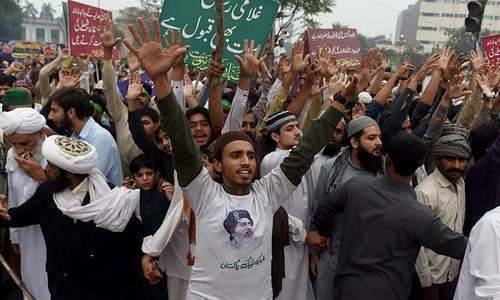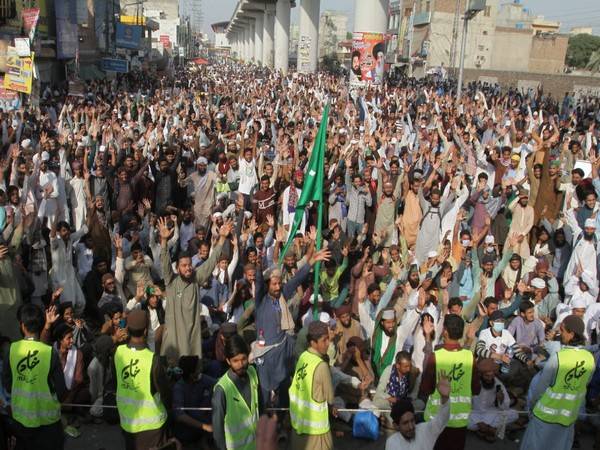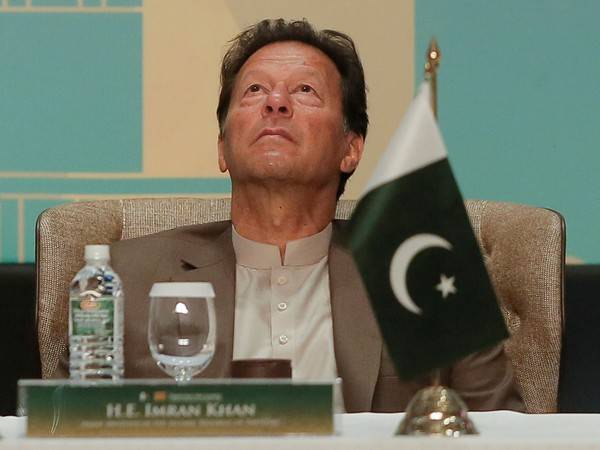“The people of Pakistan are major stakeholders in this debate — having borne the brunt of the TTP’s militancy — and they must have their say in the final decision,” according to Dawn’s Editorial, reports Asian Lite News
Pakistan is back to signing secret peace agreements with militant groups, this time with the Tehrik-e-Taliban Pakistan (TTP), which has been involved in killing several thousand civilians, including over 130 school children.
Such abject surrender to terrorists has rarely happened anywhere else but Pakistan. The banned outfit has declared a one-month ceasefire, starting from November 9.
Domestic Pakistani critics, among them political parties, civil society and sections of the media have called it surrender and capitulation.
Meanwhile, in its Tuesday Editorial, the Pakistani daily Dawn, criticised this secret deal made by the goverment with TTP without a proper debate in the Parliament “in full glare of the media.”

“The unfortunate part is that there has been almost negligible public input in this matter. The government has quietly initiated these talks and brought them to a stage where a ceasefire is now in effect. There have been hints all along the way for sure — from the president, the foreign minister and later the prime minister who chose to reveal on an international channel that talks were ongoing with the TTP,” the Editorial said.
Like his predecessors, Imran Khan has also decided to keep the contours of the peace pact with TTP secret. The public, as always, remain ignorant about the concessions given to TTP.
According to reports, Afghan Taliban are playing the mediator role between the terror outfit and the government.
The Editorial said there is “no information in terms of what Pakistan has offered in return for this ceasefire, who is on the government’s team, and what concessions are being considered for those who have the blood of Pakistanis on their hands.”

It said the issue “may have been discussed at the briefing on Monday and various parliamentary leaders would have given their suggestions, but it is a bit late to be taking them into confidence when negotiations are already in an advanced stage.”
“The people of Pakistan are major stakeholders in this debate — having borne the brunt of the TTP’s militancy — and they must have their say in the final decision. The parliamentarians should use the material from this briefing to initiate a debate on the floor of both Houses before any final deal with the TTP is agreed upon. The government must come clean on this issue,” Dawn stated.
Imran Khan had been a supporter of TTP and other militant groups for long which had earned him the sobriquet of ‘Taliban Khan’. Faced with a colossal failure as a Prime Minister and souring relationship with the army, Imran Khan has decided to draw on the support of militant groups like Tehreek-e-Labbaik Pakistan (TLP) and TTP to shore up his position in the hybrid regime that currently rules Pakistan.

But Imran Khan seems to be in no mood to learn from the recent history of failures. He is not worried what kind of message his capitulation to TLP and TTP would send to over 250 religious outfits in Pakistan — that violence was rewarding, that holding the country to ransom through acts of ransom and violence would give them a leverage over democratically-elected governments.
The so-called peace pacts with militant groups, first with TLP and now with TTP, exposes the grim reality of Pakistan’s counter-terrorism policy, a fact which must be noted by the Financial Action Task Force (FATF) at its next meeting. (with inputs from IANS)
ALSO READ – ISIS-K likely to attract anti-Taliban forces in Afghanistan

Leave a Reply